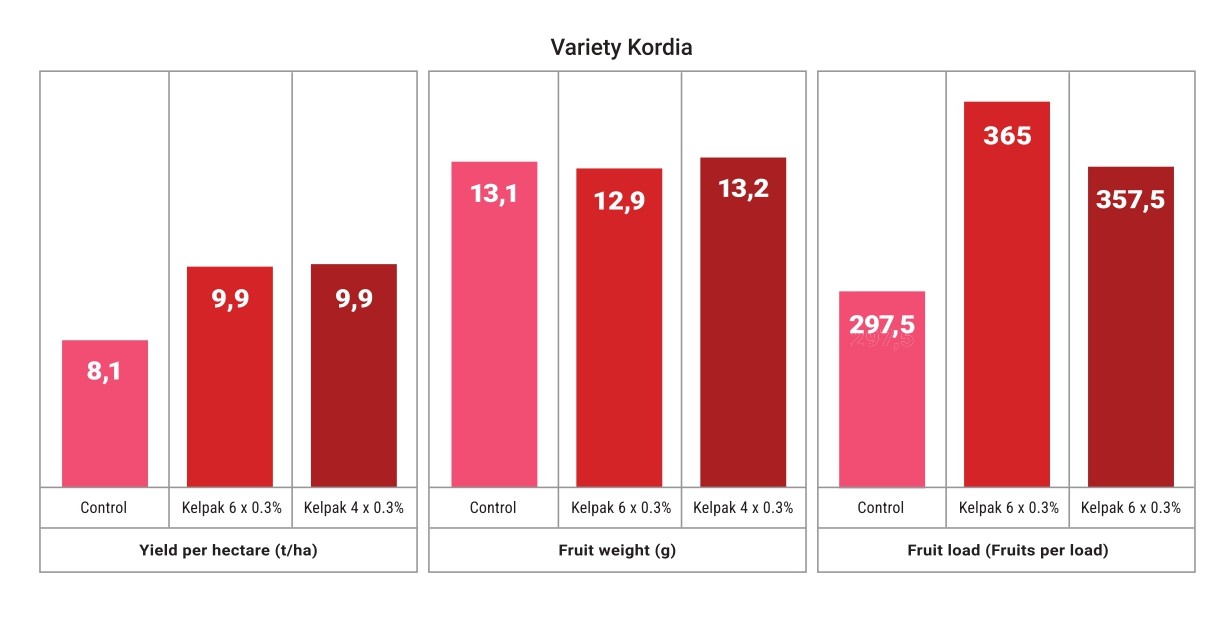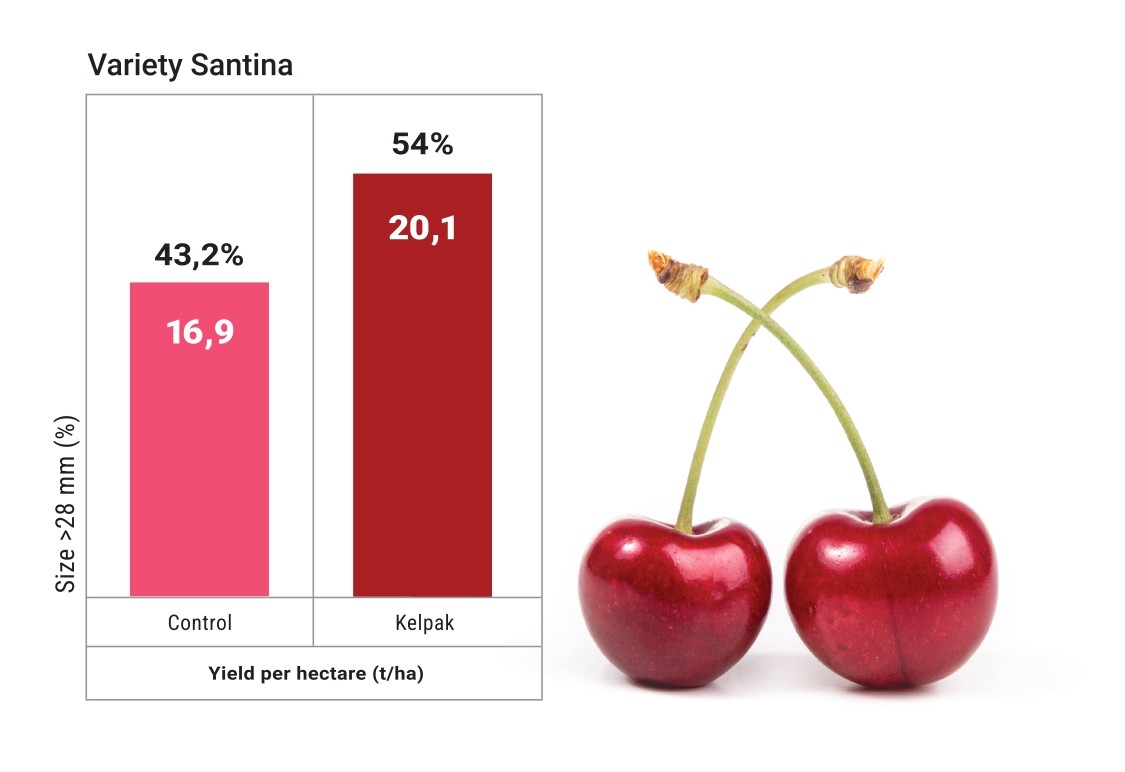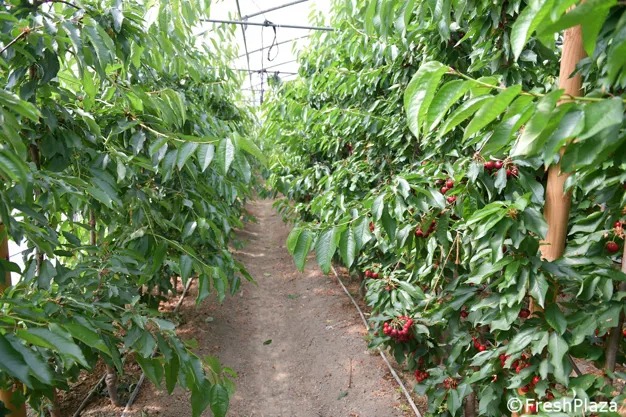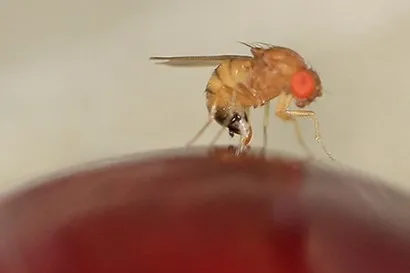Fruit set in cherry trees is shaped by multiple factors such as genetics, winter chill hours, and seasonal nutrient reserves. However, even when these are optimal, incorrect climatic conditions during the flowering period can disrupt pollination and fertilization.
The effective pollination period (EPP) is defined by the viability window of the ovule, minus the time required for pollen tube travel. Short EPPs, resulting from adverse temperatures or poor nutritional status, can lead to unsuccessful fertilization despite viable pollen and pistils. Here is where the Kelpak® spraying program on cherries, due to its ability to increase pollen germination and speed up pollen tube elongation, can be a valuable tool for farmers to maximize fruit load.
Our spraying program to promote fruit set is adaptable to fit the grower’s production system:
- 1 spray at 1% concentration at 50% bloom
- 2 sprays at 0.5% concentration at 50% bloom to full bloom
- 3 sprays at 0.3% concentration at the beginning of bloom, 50% bloom and 100% bloom
The recommended application program to increase fruit size comprises three further applications at 0.3% during pit hardening and two more applications 5-7 days apart to support the fruit cell elongation process and ensure a high marketable yield.
A recent study conducted in Italy on Kordia, a variety with low fruit set, has shown that four Kelpak® applications at 0.3% at; i) beginning of bloom (BBCH61-62,) ii) full bloom (BBCH65), iii) straw colour fruit (BBCH81) and iv) straw colour fruit + 7-14 days, improved yield per hectare by 22% above the control without reducing fruit size (Figure 1).
If we assume that the average price paid to farmers over the last 5 years for this variety is 3€/kg, the ROI achieved with the Kelpak® spraying program is over 18:1.
 Image 1. Efficacy trial conducted on Kordia in Italy during season 2023/2024.Different letters mean statistical significance between treatments according to T-Student test (p<0.05).
Image 1. Efficacy trial conducted on Kordia in Italy during season 2023/2024.Different letters mean statistical significance between treatments according to T-Student test (p<0.05).
Chile has emerged as the world's top sweet cherry exporter, shipping 413,000 tons in the 2023-2024 season, with 91% destined for China. With over a 30-day transit to its main market, Chile focuses on both productivity and top-tier post-harvest quality to preserve fruit quality. According to official statistics, Santina was the second most exported variety last season.
In a trial conducted in Chile during the 2022/2023 season on the Santina variety, a spraying program consisting of 6 applications at 0.3% during the following development stages: i) white bud, ii) full bloom, iii) petal fall, iv) pit hardening, v) +5-7 days post iv), and vi) +5-7 days post v), demonstrated an impressive 19% yield increase and a remarkable 10% increase in cherry size over 28 mm compared to the control (Figure 2).
 Image 2. Efficacy trial conducted on Santina in Chile during season 2022/2023.
Image 2. Efficacy trial conducted on Santina in Chile during season 2022/2023.
With proven results across multiple cherry varieties, production areas and seasons, Kelpak® offers a cost-effective solution to maximize yields and enhance fruit quality.
Source: Kelpak
Images: Kelpak
Cherry Times - All rights reserved












